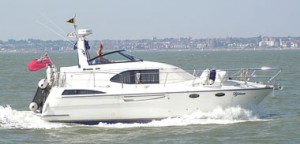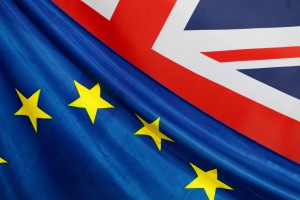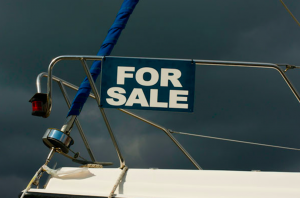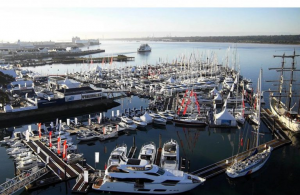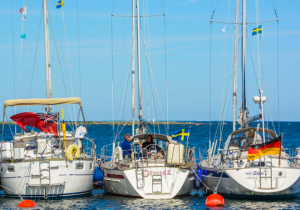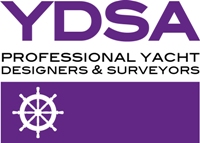Fairline Yachts seeks buyer as administrators secure fundingFebruary 11, 2025
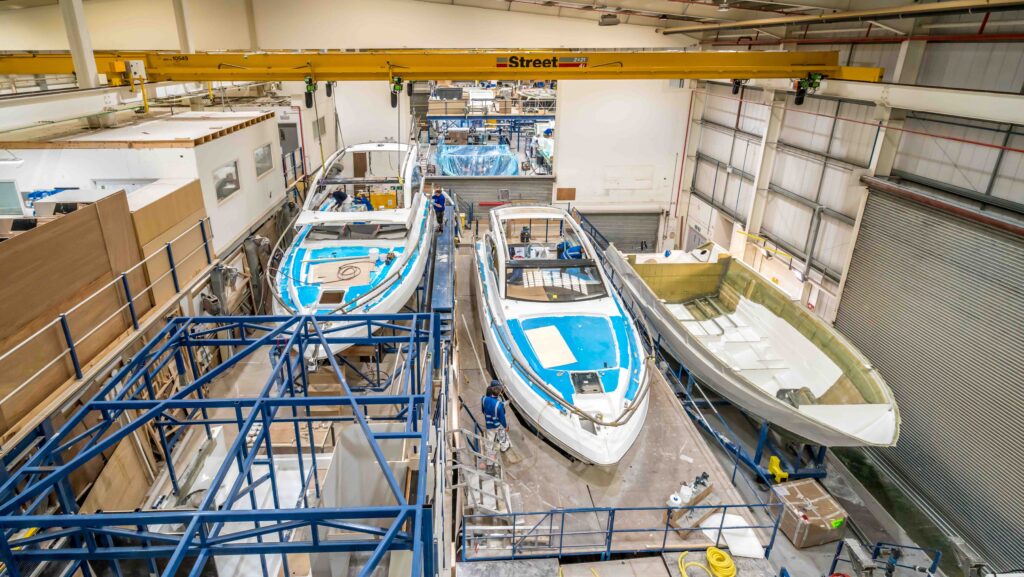
The administrators of Fairline Yachts have secured additional funding and launched a formal sale process to find a buyer for the historic British boatbuilder.
The Northamptonshire-based shipyard, which employs approximately 250 staff across two sites in Oundle and Suffolk, entered administration in January 2025, just two months after its acquisition by Arrowbolt Propulsion Systems Limited.
The insolvency process was initiated by the company’s primary lender, DF Capital, which has now provided additional funding to keep the business operational. It’s understood this funding will allow Fairline to continue the production and sale of its yachts while safeguarding the jobs of its 250 employees.
Fairline Yachts, founded in 1967, produces four yacht ranges, spanning from 33ft to 68ft (10 to 20.7 metres), which are sold worldwide both directly and through a global dealer network.
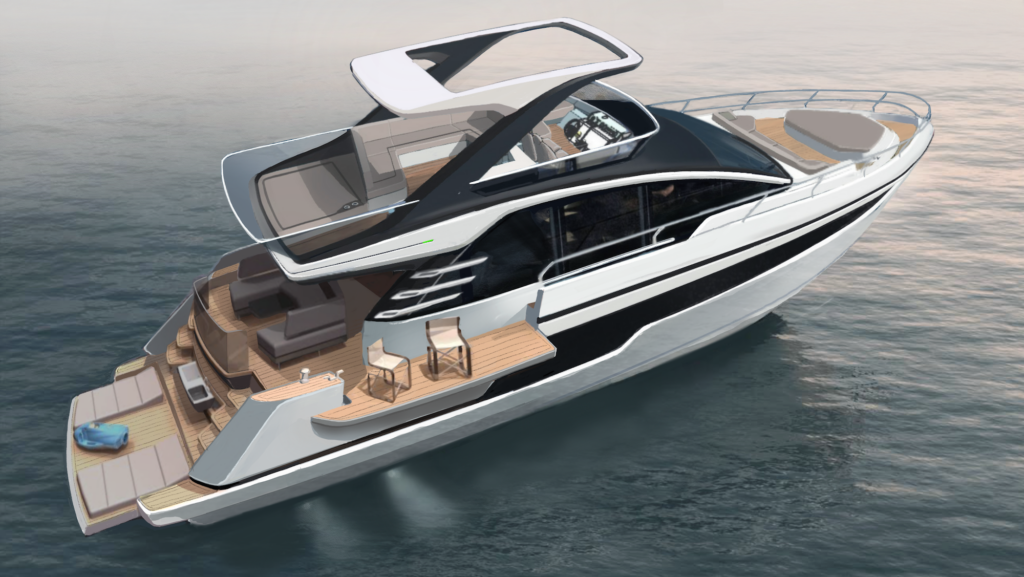
Michael Magnay, joint administrator at Alvarez & Marsal, states: “Fairline Yachts is an iconic brand with a committed and passionate team of experts who have established deep relationships with dealers and end customers over many years. The business is known throughout the world for the quality of its craftsmanship and the innovative design of its yachts.
“We expect that it could have broad appeal to international investors as well as domestic. We encourage interested parties to make contact with us to discuss the opportunity to acquire this exciting business.”
Fairline has faced financial turbulence before. In 2015, under the ownership of private equity firm Wessex Bristol, the company went into administration, resulting in 380 job losses before being acquired by Russian investors the following year. More recently, despite experiencing supply chain disruptions during the pandemic, and a labour shortage, Fairline maintained a strong order book, which was valued at £100m in early 2024. However, its latest accounts indicated a decline in turnover, dropping from £48.3m in 2022 to £41.1 million in 2023, though forecasts for 2024 had anticipated a rebound.
The administrators are now inviting potential buyers, both domestic and international, to express interest in acquiring Fairline Yachts.
Acknowledgement Marine Industry News
European Marine Services Ltd
Marine Surveyors & Consultants | ADR & Mediation | Expert Witness
www.europeanmarinesurveys.com
Tel: (44) 01603 327 123
Fairline Yachts in administration just weeks after saleJanuary 28, 2025

Fairline Yachts’ factory in Oundle, Northamptonshire.
Fairline Yachts, a renowned British yacht manufacturer based in Oundle, Northamptonshire, has entered administration just weeks after being acquired by new investors.
The insolvency proceedings were initiated by the company’s primary lender, DF Capital, which appointed Alvarez & Marsal (A&M) as administrators. The business continues to trade, with no redundancies announced so far, and efforts are underway to secure a buyer.
In a statement issued to media, Michael Magnay, joint administrator to Fairline Yachts Limited, said: “The business is continuing to trade as usual.
“We are thankful for the support and understanding of staff and there are no redundancies at this time.
“We are actively pursuing a sale of the business and are confident of a substantial amount of interest given the recognised brand and strong heritage. We encourage interested parties to make contact with us.”
Established in 1963 by Jack Newington, Fairline Yachts has long been a symbol of British boatbuilding excellence. The company also has facilities in Corby and Ipswich Marina.
The administration comes less than two months after Fairline was sold by Hanover Investors to Arrowbolt Propulsion Systems, a division of Fletcher Marine Group specialising in electric propulsion technology. Hanover acquired Fairline in June 2021 via Hanover Active Equity Fund II.
Arrowbolt, which acquired more than 75 per cent of Fairline’s shares and voting rights, appointed industry veteran Peter Hamlyn as the company’s new CEO.
However, despite plans to realign Fairline as a “clean and sustainable marine brand,” the business has faced significant challenges, culminating in its financial collapse.
In December, following the takeover, over 100 staff members were made redundant as part of cost-cutting measures. DF Capital later called in administrators to protect its interests, citing Fairline’s financial difficulties.
Fairline’s accounts for 2023 revealed a turnover of £41.1m, a 15 per cent drop from £48.3m in 2022. While the company had projected improvements in 2024, citing a £100m order book and an optimistic forecast, these hopes have now been overshadowed by its financial woes.
Efforts now turn to finding a buyer to secure the future of this historic brand.
Acknowledgement Marine Industry News
European Marine Services Ltd
Marine Surveyors & Consultants | ADR & Mediation | Expert Witness
www.europeanmarinesurveys.com
Tel: (44) 01603 327 123
Is artificial intelligence changing marine marketing?January 9, 2025

Artificial intelligence (AI), namely generative AI, is redefining the landscape for marketers, communicators and media. Whether it’s transforming traditional search engine optimisation (SEO) or it’s creating new ways to understand and connect with customers, AI is changing marine marketing.
AI is already impacting how customers consume information and how companies share information and the industry needs to be ready to harness and adapt to the technology.
Ellen Bradley, chief brand officer of National Marine Manufacturers Association (NMMA) in the US, has been witnessing first hand how new AI technology is changing the marine marketing landscape.
“In driving advocacy on behalf of our members and in helping connect the greater industry with boaters and future boaters through Discover Boating, NMMA is constantly exploring, testing and optimising how to most effectively share our industry’s story.
Artificial intelligence in marketing
When it comes to building relationships and connections with customers and future customers, Bradley says embracing AI is no longer an option but a necessity for businesses seeking to thrive in a competitive landscape.
And it’s not just marketers who should be thinking about it but entire organisations, across the C-suite.
“Today, AI-powered tools and the promise of what’s to come with AI, is transforming how we communicate, connect, work, and play. In business, and particularly marketing, it has enabled companies to tailor their strategies to individual consumers on a massive scale, opening doors to engage customers in more meaningful ways than ever before.
“In marketing, one of the areas we’re seeing dramatic shifts is in SEO — something that’s core to how a business is discovered within search engines like Google and Bing. Traditionally, SEO focused on keyword optimisation and backlink building.”
Artificial intelligence for SEO
Bradley says AI is changing the SEO landscape, putting more emphasis on user experience and intent. Search engines like Google have been utilising AI algorithms for years to rank and display web pages based on their relevance and quality. These AI-powered algorithms are now more adept at understanding and interpreting search queries — getting to know the user searching for the content or information, leading to a more semantic and contextual approach to search.
As a result, a significant transformation brought by AI is what feels like a return to a prioritised focus on content relevance and quality.
“With AI, the importance of keyword-centric optimisation has diminished,” explains Bradley. “This shift has made SEO more about delivering value through content and engaging users. For anyone who’s a creative, communicator or storyteller, this is likely music to your ears and is a reminder of the important role that remains for human-powered creativity and storytelling.”
At the same time, Bradley says marketers now have generative AI tools at their disposal to help create content and do so in a way that helps them personalise it so they’re providing customers with greater value. “These tools can help marketers produce high-quality, relevant content more efficiently, enhancing SEO performance. Again, human creativity remains crucial in this process,” she adds.
“AI-driven tools have also further enhanced technical SEO processes. Machine learning algorithms can perform website audits, organise content and optimise performance at an unprecedented pace. They can analyse vast amounts of data, identify opportunities for improvement, and predict trends, enabling marketers to make data-driven decisions that enhance their SEO and content strategies, so content is more impactful to more people.
How will artificial intelligence impact the maritime industry and marketing teams?
“One of the most significant advantages AI offers is its ability to analyse large amounts of data not only quickly, but accurately. In marketing, where customer data is abundant but often underutilised given the immense amount of time it can take to analyse, AI can be a gamechanger.
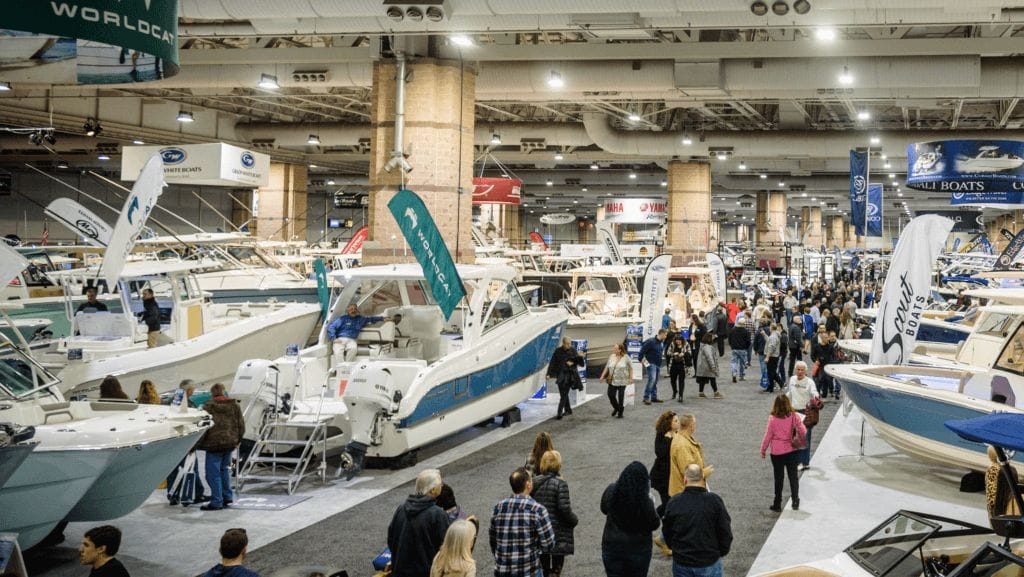
“By employing machine learning algorithms, businesses can segment their customers based on preferences, behaviours and patterns. This targeted approach allows for hyper-personalised marketing campaigns that resonate with each individual customer, ultimately driving higher conversion rates and customer loyalty. And while these tools may not be commonplace for many small businesses just yet, they will be. Learning and understanding how they work now will help companies ensure they’re not
left behind.”
Using AI in marine marketing enables users to leverage data from various sources, such as social media networks, search engines, and user browsing behaviour on a website, to provide personalised product recommendations.
“By analysing a customer’s purchase history, browsing activities on your site, and preferences, AI algorithms can predict their future needs and suggest relevant products or services. This level of personalisation can improve your customers’ experience and therefore sales/engagement, in addition to increasing opportunities for cross-selling and upselling by making it easier to share relevant information and products with your customers,” says Bradley.
Whether it’s SEO, content creation, personalisation, customer engagement, data management and insights, or other areas of business, the speed at which AI technologies are advancing is remarkable.
Bradley notes that culture within companies remains critical. “Those companies that embrace their teams’ exploration and provide an environment filled with psychological safety where it’s okay to ask questions, share ideas and make mistakes without fear of negative consequences, will be the ones that naturally adapt.
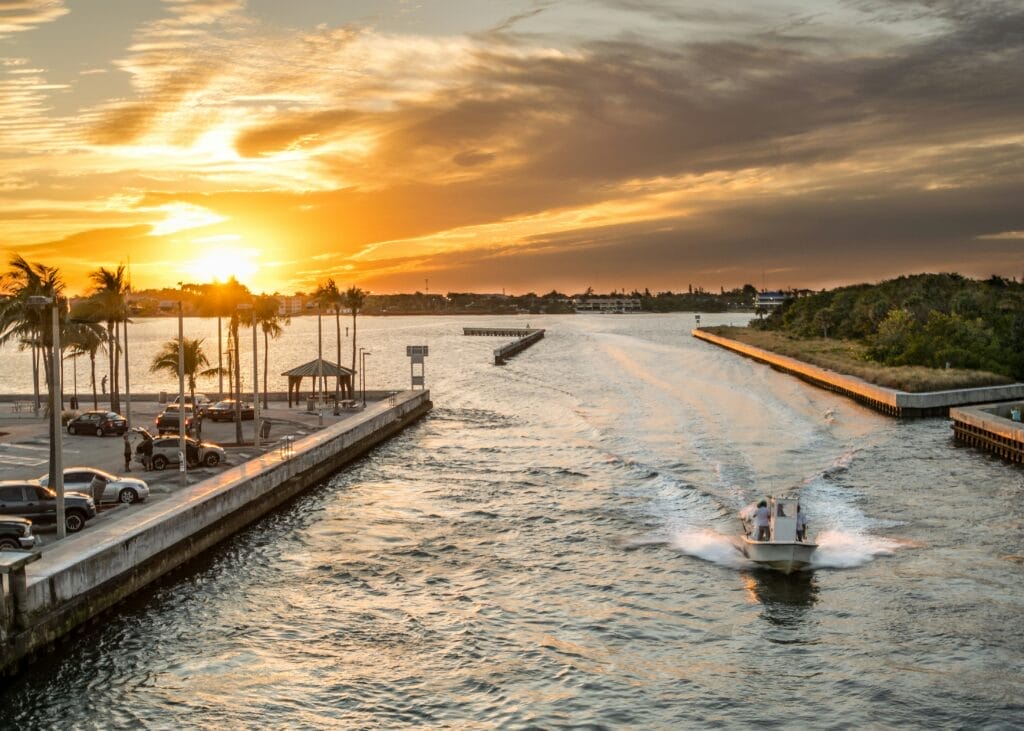
“While AI is bringing a lot of exciting new ways of doing business, it’s also bringing a great amount of uncertainty and for some, fear. Because of how fast moving it is, and because there remains a lot yet to understand, before companies dive into AI it’s important to approach it with thought and intent, particularly when it comes to the myriad ethical questions that AI creates.
“Whether its data integrity, transparency on sourcing content, navigating the bias and discrimination that can come from AI, deep fakes and other misinformation, or the privacy and security risks of AI, before adapting it across a business, it’s critical to ensure there are clear guardrails and ethical guidelines in place to protect employees, customers and business.
“Like many businesses and trade associations, we know that everything we do, and the impact we can have, is rooted in our relationships — the ones we have, the ones we’re building, and the ones that happen because of the great work we do on behalf of our existing customers and partners.
“It’s this focus on relationships that has us looking at the impact AI is having, and may have, on how we continue to both cultivate and nurture relationships in a meaningful way. We know a lot of companies are grappling with the same and as an industry trade association, sharing what we’re learning is an important part of our AI journey.”
Acknowledgement to Marine Industry News
European Marine Services Ltd
Marine Surveyors & Consultants | ADR & Mediation | Expert Witness
www.europeanmarinesurveys.com
Tel: (44) 01603 327 123
Princess Yachts lays off 250 staff amid ‘market challenges’January 8, 2025
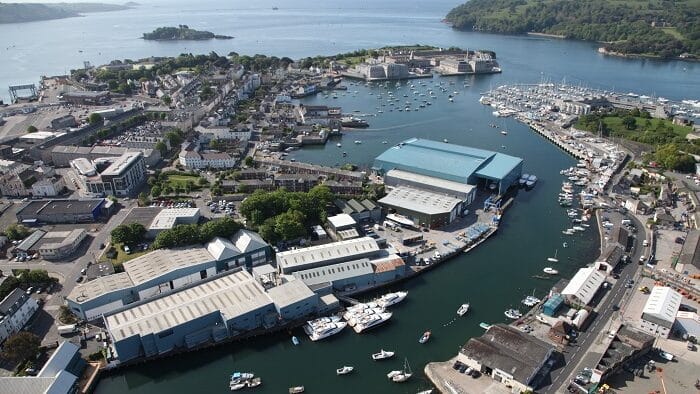
British boatbuilder Princess Yachts has confirmed it plans to cut approximately 250 jobs at its Plymouth shipyard, citing “challenging market conditions” and a need to streamline its operations.
The luxury yacht manufacturer, which currently employs about 2,700 people, is entering a period of consultation with union representatives and affected employees. The redundancies, representing just under 10 per cent of the workforce, will primarily impact hourly-paid roles across various operational areas.
In a statement shared with MIN, the firm says this will involve “streamlining some of its processes to build a more flexible operation around its most experienced and skilled people” with an “increased focus on quality and operational efficiency”.
This follows a challenging financial period, with Princess Yachts reporting a £69m pre-tax loss in 2022.
In a statement shared with staff and media, CEO Will Green says that 2024 has been an “important turnaround year” for the company, with significant progress in improving efficiencies and launching new products.
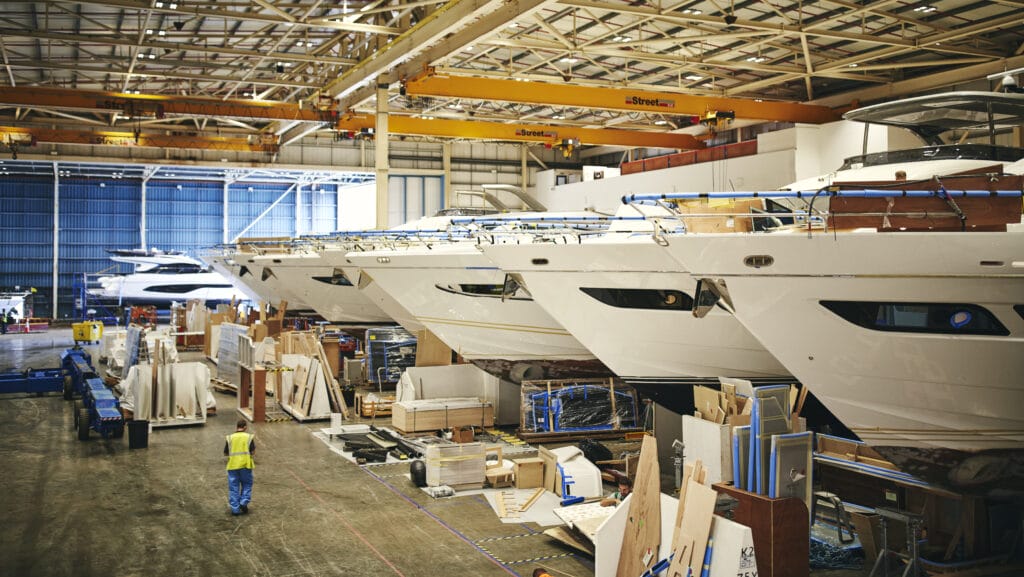
“We have not been immune to the global downturn that has been affecting the industry,” says Green. “Making any decisions that directly affect people’s jobs is always difficult, but we have a responsibility to all staff to ensure we have a strong business. I am confident that these adjustments, together with the progress we have made on our turnaround plans this year, will underpin a much more robust business long-term and allow us to concentrate on what we do best – building the highest quality yachts in the market.”
Princess Yachts attributed some of its financial struggles to rising costs, supply chain disruptions, and delays in the delivery of key components. The company has also faced pressures stemming from government policies, including tax measures that Green described as having “severely impacted” its recovery plan.
Nevertheless, a strong order book and investment from private equity firm KPS Capital Partners, which acquired the business in March 2023, have supported its operations and underpin future growth plans. KPS injected around £54m into the company, enabling investments in its South Yard production facility and other areas.
The redundancies come after a smaller round of layoffs earlier this year, which affected around 40 office-based roles.
The company says it remains focused on launching new models, such as the S80 and S65 introduced in 2024, and the F58 and V65 scheduled for 2025. Green argues that these measures will help build a “stronger business in anticipation of the market returning to normal”.
Speaking to the BBC, Plymouth MP Luke Pollard described the job cuts as “awful news for all those affected” and emphasised the importance of Princess Yachts to the local economy. “Ensuring they can continue to operate sustainably is vital,” he said, adding that the timing of the redundancies, just before Christmas, made the news even harder for employees.
In its statement, Princess Yachts reiterated its commitment to supporting employees through the consultation process and said that the layoffs, while “unfortunate”, are necessary for the company’s long-term sustainability and success.
Acknowledgement to Marine Industry News
For more information contact:
European Marine Services Ltd
Marine Surveyors & Consultants | ADR & Mediation | Expert Witness
www.europeanmarinesurveys.com
Tel: (44) 01603 327 123
Broom Boats in Norfolk up for sale after 125 yearsFebruary 20, 2024
British marine and leisure firm Broom Boats of Brundall, which has operated on the Norfolk Broads for 125 years, has been put up for sale.
Located on the River Yare, Broom Boats was established in 1898 and is known for building boats and its fleet of charter vessels. The business also operates as a marina and boat yard, offering repair and maintenance services, although its boatbuilding arm closed in 2018.
Specialist business property adviser Christie & Co has been instructed to sell Broom Boats of Brundall on behalf of Broom Marine Group.
Local news outlet Eastern Daily Press reports that the owners want to sell so they can focus on their other company, a strategic land and property development business.
The business originally established a hire fleet in 1912, enabling clients to explore the unique landscape of the Norfolk Broads National Park. Today, the business operates one of the newest fleets on the Norfolk Broads.
The 8.6-acre (3.49 ha) freehold site provides over 72,000 sq ft (6,719 sq m) of marine-related buildings together with 78 private marina berths and a £3.28m hire fleet comprising 24 luxury cruisers and six electrically operated day-craft and two fishing boats.
The most recent addition to the business was the acquisition of the former Yare public house adjacent to the site entrance in 2022. The property underwent a £600,000 transformation, opening in October 2022 as The White Heron with a food menu introduced in April 2023 and B&B from boats moored adjacent to the pub in November last year.
Christie & Co says offers are invited for the business, which will be sold as a going concern, with staff transferring to a new owner at completion.
“We’ve witnessed an uptick in demand for both inland and coastal marina and boating businesses over the last 18 months,” says Jon Patrick, head of leisure and development at Christie & Co, who is handling the sale process. “This has come from existing UK and European operators, as well as boating and marine enthusiasts and investors.
“However, we’ve also seen greater activity in the sector from owners of holiday parks and associated leisure hospitality businesses, which do share some similarities in terms of the underlying business model with marinas. As a result, we anticipate that interest in Broom Boats will come from a diverse range of parties.”
Courtesy of Industry News
For more information contact European Marine Services Ltd.
Marine Surveyors & Consultants | ADR Mediation | Expert Witness
www.europeanmarinesurveys.com
Tel: (44) 01603 327 123
Princess Yachts – Sold to private US equity firmFebruary 16, 2023
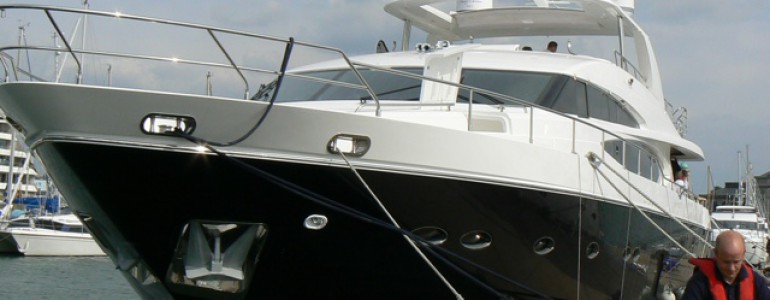
Princess 95′ PPI Pre-delivery Inspection undertaken by EMS
Plymouth-based Princess Yachts, Britain’s largest luxury boatbuilder, has been sold to a US-based private equity firm.
Princess was put up for sale in 2022 by private equity group L Catterton, who reportedly hired bankers at Macquarie to find a buyer.
In a statement issued this morning (14 February 2023), Princess confirms that KPS Capital Partners has entered into a definitive agreement to acquire a controlling equity interest in the business.
KPS is a New York-based private equity giant that makes controlling equity investments in manufacturing companies, in North America and Europe. The firm has approximately $14.4 billion of capital under management, as of September 2022.
In 2019, KPS acquired the fitness equipment business of Brunswick Corporation, including the Life Fitness brand, for $490 million in cash.
Existing shareholders will retain ownership in Princess, with the transaction expected to be completed in the first quarter of 2023.
The moves come after the company announced expansion plans last year as part of the successful bid by Plymouth city council to create a freeport in the region. Princess says this new investment from KPS will ‘help support these plans and reinforce the unique national and international marine capabilities that reside in Plymouth and the wider South West region’.
The Princess business was founded in 1965, and distributes through a 50-strong global network. It had been backed by L Catterton and its predecessor entity since 2008.
Ryan Harrison, a partner of KPS Mid-Cap Investments, says: “We are excited to make this significant investment in Princes Yachts, a leading company in the luxury global yachting industry with an iconic brand grounded in British tradition, a remarkable and growing product range, and world-wide reputation for quality and innovation.
“KPS’ investment will accelerate Princess’ growth trajectory and fund numerous investments for its future. We look forward to working with Princess’ existing stockholders, chief executive officer, Antony Sheriff, the senior leadership team, and the talented employee base at Princess Yachts.”
Antony Sheriff, Princess Yachts‘ chief executive, adds: “We are thrilled to partner with KPS for this exciting new chapter for Princess Yachts. KPS and the Princess Yachts team are deeply committed to investing in the company’s future while continuing to further strengthen our portfolio of best-in-class motor yachts. With a current order book nearing a record $1 billion and many model lines sold into 2025, we have never been in a stronger commercial position.
“Together with KPS’ tremendous track record of manufacturing excellence and investing in leading brands, we are now positioned to take Princess Yachts to the next level of industry leadership in quality and innovation. Under KPS’ ownership, we will accelerate a range of growth and operational initiatives to build upon our long and successful history.”
Acknowledgement to Marine Industry News
For more information contact European Marine Services Ltd.
Marine Surveyors & Consultants | ADR Mediation | Expert Witness
www.europeanmarinesurveys.com
Tel: (44) 01603 327 123
Marine collaboration yields confirmation on post-Brexit VATApril 9, 2021
Recreational Craft – VAT issues Post-Brexit – See below Scenario’s
Following the UK’s withdrawal from the EU, there have been many questions which have caused confusion and uncertainty for the leisure marine sector both in the UK and in the EU27. Arguably, the biggest has been around the VAT status of recreational craft at the end of the transition period.
In a show of unity, the International Council of Marine Industry Associations (ICOMIA), European Boating Industry (EBI), European Boating Association (EBA), British Marine (BM) and the Royal Yachting Association (RYA) joined forces to provide clarification on VAT and customs for recreational boating companies and users. The five organisations have released this guidance to their members and non-members.
The group has put forward key scenarios affecting boaters (detailed below) and confirms that the European Commission has now responded, validating the interpretation of the guidance and how VAT should be applied under the various examples. This follows a push led by the EBI with the European Commission to provide this important clarification.
Positive confirmation of the scenarios should now also be recognised by each EU country in their dealings with this matter. Failure to do so could result in formal complaints being made to the European Commission. Further clarification will be sought on the documentation required and interpretation of establishment of “person established in the customs territory of the Union”.
Commenting on the collaboration, Philip Easthill, secretary general of the EBI, says: “We are delighted to have received the responses from the commission that companies and boaters urgently need. Given the impact of Brexit on businesses and supply chains, clarity on VAT for second-hand boats is highly important. The cooperation of EBI with our partners has been key and we will continue to advocate for clarity on VAT issues through our channels at EU level.”
Lesley Robinson, CEO of British Marine, adds: “Collaboratively working together with other leisure marine industry bodies is a highly successful way of collectively garnering results, and this recent clarity received on VAT issues post-Brexit will greatly benefit British Marine members and the UK leisure marine industry. The answers to these scenarios will be welcomed in particular by UK boat retailers and brokers to assist in maintaining a healthy trade of second-hand boats across the UK and EU.”
VAT issues scenario post-Brexit
The Union Customs Code referred to within this document can be found here.


The following acronyms are used:
TPE = The time at which the transition period ended – 31 December 2020, 23:00 UTC
VPS = VAT Paid Status: i.e. in free circulation
EU28 = EU before TPE, i.e. including UK
EU27 = EU after TPE, i.e. excluding UK
GB = England / Scotland / Wales excluding Northern Ireland
TA = Temporary Admission
RGR = Returned Goods Relief
UCC = Union Customs Code
Acknowledgement to Marine Industry News
For more information contact European Marine Services Ltd.
Marine Surveyors & Consultants | ADR Mediation | Expert Witness
www.europeanmarinesurveys.com
Tel: (44) 01603 327 123
£5000 Extra to sell pre-owned boats in EU & Vice versaMarch 9, 2021
Following the release of the UK – EU Trade and Cooperation Agreement, British Marine and the Royal Yachting Association (RYA) have been working to understand the impact of various aspects of the agreement on both the marine industry and recreational boat owners.
It’s not good news. ‘Post construction assessments’ will be needed to sell pre-owned CE marked recreational craft to the EU, and vice versa. The assessments, say a joint statement, are going to cost owners between £500-5000 (dependent on the vessel).
As Howard Pridding, RYA director of external affairs, says: “This is yet another unanticipated and unwelcome aspect of Brexit which could affect many owners financially through no fault of their own. We are working in partnership with industry to better understand and mitigate the situation and potential cost burden.”
British Marine and the RYA say the new information comes from the EU Commission and the UK Department for Business, Energy and Industrial Strategy (BEIS). It focuses on the trade of pre-owned CE marked recreational craft between the UK and EU following the UK’s exit from the European Union.
Both the UK and EU have confirmed that any vessel being traded second-hand between the UK and EU will be required to meet the obligations set out in either the Recreational Craft Directive (RCD) in the EU, or the Recreational Craft Regulations (RCR) in the UK, when placed on either market after the 1 January 2021.
Therefore, this means that a pre-owned vessel being imported from the EU to be placed on the UK market will, after 1 January 2022, be required to obtain a new UK Conformity Assessed (UKCA) mark in line with the requirements of the RCR. In order to obtain a UKCA mark, a boat will require a post construction assessment and third-party verification.
Similar rules will apply when selling vessels into the EU. Pre-owned CE marked vessels which were in the UK at the time of departure, 11pm on the 31 December 2020, when exported to the EU will be required to undergo a recertification of the CE mark when being placed on the EU market. This means a boat will require a post construction assessment in line with the RCD and third-party verification.
Boat brokerages, distributors, boat owners and buyers may well be heavily affected by this post-Brexit position, as the responsibility will fall upon them to ensure a vessel meets the applicable requirements before buying and selling second-hand boats between the UK and EU. Estimated costs of post construction assessments and verification are between £500-5000 dependent on the vessel.
British Marine and the RYA are currently liaising with the European Boating Industry association in order to raise concerns with this position in Europe whilst also directly engaging with BEIS in the UK.
“As a consequence of Brexit, this is a complex and potentially difficult situation,” says Lesley Robinson, CEO of British Marine. “Faced with the process of individual boat re-certification, boat builders, brokers and consumers will be impacted in terms of both time and cost when selling and buying second-hand boats cross borders. At this stage in time, British Marine is working hard to represent affected members and seek clarification of the exact ramifications of these regulations.”
Acknowledgement to Marine Industry News
For more information contact European Marine Services Ltd.
Marine Surveyors & Consultants | ADR Mediation | Expert Witness
www.europeanmarinesurveys.com
Tel: (44) 01603 327 123
British Marine – Leisure Reopening as from 8 MarchMarch 7, 2021
British Marine says it has met with the Department for Environment, Food and Rural Affairs to clarify the guidance specific to the leisure marine industry reopening from lockdown on 8 March.
It’s produced a matrix, which it says has been approved by government, detailing how British Marine members (England-only) should interpret the guidance.
Each step of the plan has a ‘no earlier than’ date, five weeks later than the previous step, to allow time to assess the impact of the previous step.
The organisation says it has clarified that, from 8 March, all forms of watersports, including the use of privately-owned craft and self-drive day hire boats for single households, can go ahead in England (subject to local navigation and harbour authority guidance). Furthermore, it has been concluded that marinas can open from 8 March to allow recreational boating to take place and boat brokerage can open in line with non-essential retail from 12 April.
This all assumes that boats allow for social distancing to take place.
The full matrix is split into seven categories: hotel boats, self drive day hire, self drive holiday hire, skippered boats, fixed trading boats, watersport activities, and private boats.

“This roadmap provides hope and reassurance, and I am pleased that the collaboration between government, other user groups and ourselves has resulted in aligned guidance for marine businesses and participants,” says Lesley Robinson, CEO of British Marine. “It is welcome news that parts of our industry should be able to re-open in time for the Easter holidays.
I am cautiously optimistic about the months ahead, based on the assumption that, as the vaccine rollout accelerates, the phased easing of restrictions is achievable.”
Guidance for Scotland, Wales and Northern Ireland differs. British Marine says it remains engaged with government on the individual plans set out by the devolved administrations.
Acknowledgement to Marine Industry News
For more information contact European Marine Services Ltd.
Marine Surveyors & Consultants | ADR Mediation | Expert Witness
www.europeanmarinesurveys.com
Tel: (44) 01603 327 123
Boat owners caught ‘in perfect storm’ says Cruising AssociationFebruary 10, 2021
Robin Baron, chairman of the Cruising Association’s RATS committee, says cruising yachtsmen are in the middle of ‘a perfect storm’.
His words come at the end of months of covid restrictions, a VAT ‘trap’ and new visa rules exacerbating everything. Amid a surge of enquiries about Brexit which has seen the CA run a seminar and respond to multiple questions from members in unfolding territory, Baron has settled on a plan to at least help members negotiate visa arrangements. He’s looking to exert pressure from within.
Since 1 Jan 2021, people can only stay 90 days in any 180-day period within the Schengen area (see below). The 180-day reference period is not fixed. It is a moving window, based on the approach of looking backwards at each day of the stay over the time period. Only absence for an uninterrupted period of 90 days allows for a new stay for up to 90 days.
“This simply doesn’t work for cruising yachts,” states Baron. “It cuts off either April and May, or August and September.” But what perplexes him is that while the UK government gave “EU citizens the right to visit for up to 180 days, our government declined to negotiate the reciprocal arrangement with Schengen.”
Baron admits that a few yachtsmen calling for extended visas or equal arrangements is probably quite low on the government’s priority list, but when added to the cacophony of noise being made by musicians and second home owners also pushing back against 90 days, he’s determined that any changes to be made include boat owners.
“My worry is that second home owners – who find themselves in the same position – will lobby successfully to have an extension, but the Cruising Association needs to make sure that any development includes people in boats and that a visa status change isn’t dependent on having a second address,” he says.
Inevitable consequences of Brexit
With the UK Government so committed to stopping freedom of movement of people, it seems no surprise that the EU’s Brexit negotiator Michel Barnier says the limited 90 / 180 visa result was one of the “inevitable consequences” of Brexit.
“I very much regretted that the British didn’t have more ambition for people’s mobility,” Barnier told reporters, specifically in reply to questions about musicians. That thwarted ambition is now trickling into everyone’s lives.
“From last March, we made fairly ambitious proposals in terms of mobility, including for specific categories such as journalists, performers, musicians and others,” he went on. “But you need to be two to make a deal.”
Now Baron is looking at ways of making a deal happen from within the EU, given the length of the UK Government’s priority list and where yacht owners are placed.
“We’ve selected countries and are working to create groundswell support to add pressure from within Schengen to allow UK yachts to visit for longer periods. We’re trying to raise localised support, from marinas and other marine trades in target countries like Spain, Portugal and Greece. We’re hoping they’ll help pressure their MPs to grant extended visas,” Baron says. “Our inland waterways section is seeking to negotiate with the Netherlands, using locals to provide influence, to try and gain extended visas.”
He recognises that this is a long-shot as “the economic picture of visiting UK yachtsmen doesn’t add up to a ton of money”, but cites Sweden’s extended visa as a good model to start with. According to Baron, several CA members are currently applying for a visa to see how the process works and identify any pinch points.
“We’ll try out the French system when that opens,” he says, “and we’re expecting the Greeks to move swiftly. Theirs is a small economy, but there are a lot of Brits with boats there.”
The VAT trap
But while Baron has a route forward – albeit lengthy – with attempts to influence visa changes, the perfect storm is raging. And Baron himself has been caught in a downpour, also known as the VAT trap.
Like thousands of other yacht owners, Baron has found himself in a dilemma. Bring his boat back to the UK and face VAT charges running into the thousands, or leave it where is it (in his case Denmark) and have cruising severely curtailed.
The problem arose from a statement made in spring 2019, when – as Baron explains – HMRC said if a boat owner paid VAT in the EU, it would be treated as if the VAT had been paid in the UK.
“Some people went to Europe and bought boats VAT paid thinking they could bring them to UK with no VAT owing,” says Baron, “as that’s what had been said.
“But in 2020, HMRC did a complete about turn. At the end of the sailing season it announced that if you’d bought a boat in the EU – and it had never been in the UK – and you bring it here, even for a day, you’ll be charged VAT.”
2021 is seen as a grace period for those who have had a boat under the same ownership in the UK and EU to get it back . . . but the boat must have visited UK waters already to be eligible, so that it’s classed as ‘returning’.
Freedom to make new rules
Baron says the ‘returned goods’ concept is a simple “cut and paste” from EU legislation which the UK Government has chosen to follow at a point when it had complete freedom to make new rules.
“It [government] didn‘t have to do it this way and most boat owners caught in the trap will simply not return their boats to the UK to the financial detriment of the UK marine industry,” he says.
While the CA’s members campaigned and lobbied their local MPs, the treasury reply was a “standard, bland response which doesn’t address the concerns of some people having to fork out substantial additional sums to bring their boat back to the UK.”
He’s less than sanguine about the government’s response.
“We’re still seeking a meeting with HMRC,” Baron says. “Brexit is down the list behind covid. The cabinet’s bandwidth is completely taken over by covid which is a much more serious problem than a few yachtsmen having to pay VAT.”
But even those who aren’t caught in the VAT trap and who can make use of the grace period are in trouble. “People with boats in the Eastern Med are ‘stuffed’,” says Baron. “Getting back with covid restrictions and the 90 days ruling may very well be difficult.”
Thousands of boaters struggling
He estimates that several thousand boaters are struggling in one or more of the storm’s pathways, but it’s hard to say definitively as he hears people’s anxieties due to restrictions, not their ‘real life experiences’. Baron’s expecting to hear more about that when covid eases and the next barrier to travel arises – insurance.
“Even if we gain an extended visa,” he says, “people will need evidence of health insurance and that will need to cover repatriation costs. That’s going to be another complication as insurance companies are reassessing everything in the light of covid . . . and lots of yacht owners are over 70.”
His final words of advice for any boat owner revolve around paperwork.
“Carry all the documents you can muster,” he says. “We don’t know what the entry requirements will be for each EU port. But I’m confident we’ll get it sorted out.”

Images courtesy of Cruising Association.
The 26 Schengen countries are Austria, Belgium, the Czech Republic, Denmark, Estonia, Finland, France, Germany, Greece, Hungary, Iceland, Italy, Latvia, Liechtenstein, Lithuania, Luxemburg, Malta, the Netherlands, Norway, Poland, Portugal, Slovakia, Slovenia, Spain, Sweden and Switzerland.
Acknowledgement to Marine Industry News
For more information contact European Marine Services Ltd.
Marine Surveyors & Consultants | ADR Mediation | Expert Witness
www.europeanmarinesurveys.com
Tel: (44) 01603 327 123



